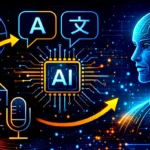Quantum machine learning (QML) represents a groundbreaking intersection of quantum computing and traditional machine learning, promising to revolutionize data processing and analysis capabilities. This article comprehensively explores Quantum Machine Learning, unraveling its foundational principles, key components, advantages, applications, challenges, and future trends.
Unveiling Quantum Machine Learning
Quantum Machine Learning harnesses the principles of quantum mechanics to enhance classical machine learning algorithms. At its core, QML leverages quantum bits or qubits, the fundamental units of quantum information, to perform computations that classical computers find challenging. The synergy between quantum computing and machine learning opens new avenues for solving complex problems more efficiently.
Quantum Computing Basics
A grasp of quantum computing basics is essential to understand Quantum Machine Learning. Classical computers use bits in one of two states: 0 or 1. In contrast, quantum computers use qubits, which can exist in multiple states simultaneously, thanks to superposition. This property exponentially increases computational capacity and forms the foundation for the quantum parallelism that QML exploits.
Quantum Entanglement in QML
Entanglement, another quantum phenomenon, plays a crucial role in QML. When qubits become entangled, the state of one qubit becomes intrinsically linked with the state of another, even when separated by large distances. Utilizing entanglement, QML algorithms can perform computations on a global scale, allowing for unprecedented parallelism and information processing capabilities.
Quantum Gates and Circuits in QML
Quantum gates are the building blocks of quantum circuits in QML. These gates manipulate qubits, inducing quantum transformations. Quantum circuits are analogous to classical circuits but exhibit a unique feature – quantum parallelism. This parallelism enables QML algorithms to process many possibilities simultaneously, exponentially accelerating computation.
Key Components of Quantum Machine Learning
QML comprises several key components that distinguish it from classical machine learning approaches.
Quantum Variational Algorithms
Variational algorithms in QML, like the Variational Quantum Eigensolver (VQE), optimize quantum circuits to find the minimum energy of a given system. These algorithms are particularly potent for solving optimization problems, which are prevalent in machine learning tasks like parameter tuning and model training.
Quantum Support Vector Machines (QSVM)
Quantum Support Vector Machines (QSVM) represent a quantum analog to classical support vector machines. Leveraging quantum parallelism, QSVM can efficiently classify data points in high-dimensional spaces, offering a quantum speedup for certain machine-learning tasks.
Quantum Neural Networks
Quantum neural networks are a quantum analog of classical neural networks. These networks utilize qubits and quantum gates to perform computations, potentially providing advantages in specific applications, such as quantum-enhanced pattern recognition and optimization.
Quantum Data Encoding
Quantum data encoding is a critical component of QML that involves representing classical data in a quantum form suitable for processing on a quantum computer. Various techniques, including amplitude encoding and quantum feature maps, facilitate converting classical data into a quantum state for quantum computation.
Advantages of Quantum Machine Learning
QML brings many advantages that set it apart from classical machine learning approaches.
Quantum Speedup
The most notable advantage of QML is its potential for quantum speedup. Quantum algorithms can process information exponentially faster than their classical counterparts, offering a significant advantage in solving complex problems, particularly large-scale data processing and optimization tasks.
Enhanced Parallelism
Quantum parallelism enables QML algorithms to explore multiple possibilities simultaneously. This parallelism is especially advantageous for tasks involving large datasets, optimization, and complex mathematical computations, where classical algorithms may face scalability challenges.
Improved Optimization Solutions
Quantum computers excel in solving optimization problems, a crucial aspect of many machine learning tasks. QML algorithms, such as the Quantum Approximate Optimization Algorithm (QAOA), demonstrate the potential to find optimal solutions more efficiently than classical optimization methods.
Quantum Entanglement for Correlation Capture
The inherent entanglement in quantum systems allows QML algorithms to capture intricate correlations within data, providing a unique advantage in applications where understanding complex relationships is crucial, such as in quantum-enhanced feature extraction.
Applications of Quantum Machine Learning
Quantum Machine Learning holds promise for various applications spanning different industries.
Quantum Chemistry Simulation
QML finds applications in simulating quantum chemistry problems that are computationally expensive for classical computers. Quantum algorithms can provide more accurate predictions of molecular properties, leading to advancements in drug discovery, materials science, and chemical engineering.
Financial Portfolio Optimization
In finance, QML can be applied to optimize complex portfolios by efficiently handling large-scale optimization problems. Quantum algorithms may offer solutions outperform classical approaches, enabling more effective risk management and investment strategies.
Machine Learning in Quantum Physics
Quantum Machine Learning plays a role within its realm, contributing to advancements in quantum physics. QML techniques are employed to analyze and interpret experimental data, aiding researchers in understanding quantum phenomena and optimizing quantum experiments.
Cryptography and Quantum Security
Quantum machine learning has implications for cryptography, particularly in developing quantum-resistant cryptographic algorithms. The inherent quantum properties, such as entanglement, can be harnessed to create more secure communication protocols resistant to quantum attacks.
Challenges in Quantum Machine Learning Implementation
Despite its immense potential, QML faces several challenges that must be addressed for widespread adoption.
Quantum Error Correction
Quantum computers are susceptible to errors due to decoherence and environmental interactions. Implementing effective quantum error correction is a major challenge in QML to ensure the reliability of computations.
Scalability Issues
The scalability of quantum computers remains a challenge, especially when dealing with large datasets and complex algorithms. As the field progresses, advancements in hardware and algorithms are necessary to address scalability concerns.
Limited Quantum Hardware Availability
Access to quantum hardware is currently limited, posing a challenge for researchers and practitioners looking to implement and experiment with QML algorithms. Developing more accessible and scalable quantum computing platforms is crucial for widely adopting QML.
Future Trends in Quantum Machine Learning
The future of Quantum Machine Learning is poised for significant developments, driven by ongoing research and advancements in quantum technologies.
Quantum Cloud Computing
The emergence of quantum cloud computing is anticipated, enabling researchers and businesses to access quantum computing resources remotely. This trend could accelerate the adoption of QML by providing broader access to quantum hardware and algorithms.
Hybrid Quantum-Classical Algorithms
Hybrid quantum-classical algorithms, combining classical and quantum computing strengths, are expected to become more prevalent. These algorithms leverage quantum speedup for specific tasks while utilizing classical computing for preprocessing and post-processing steps.
Quantum Machine Learning Frameworks
The development of quantum machine learning frameworks is on the horizon. These frameworks will provide tools and libraries that simplify the implementation of QML algorithms, making them more accessible to a broader audience of researchers and developers.
Conclusion
Quantum Machine Learning stands at the forefront of innovation, offering a transformative approach to data processing and analysis. The marriage of quantum computing principles with machine learning techniques opens new frontiers, with potential applications ranging from quantum chemistry to finance and cryptography. While challenges persist, ongoing research and technological advancements position Quantum Machine Learning as a promising paradigm for the future. As quantum technologies continue to mature, the impact of QML on diverse industries and scientific disciplines is expected to unfold, ushering in an era of unprecedented computational possibilities.





